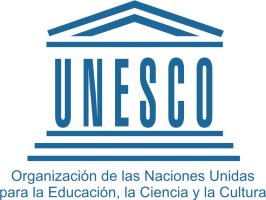Location
Occupying the greater part of the Iberian Peninsula, Spain is the fourth-largest country in Europe.
Climate
The Spain climate is extremely varied. Due to its varied climate, Spain has a greater variety of natural vegetation than any other European country; some 8,000 species are catalogued.
Population
The population of Spain in 2015 was estimated by the United Nations (UN) at 46,500,000, which placed it at number 29 in population among the 193 nations of the world.
Languages
According to the 1978 Constitution, Spanish is the national language. Catalan, Galician, Basque, Bable, and Valencian are also official languages in the respective autonomous communities.
Administrative divisions
The Spanish State is divided into 17 autonomous communities and 2 autonomous cities, both groups being the highest or first-order administrative division in the country. Autonomous communities are divideded by provinces, of which there are 50 in total, and in turn, provinces are divided by municipalities
Domestic Trade
A wide variety of shops are available in Spain, from small specialty boutiques to large department stores, shopping malls, and outlet stores. Usual business hours are from 9 am to 6 pm, Monday through Friday. Banks are open from 8:30 am to 2:30 pm, Monday through Friday, and to 1 pm on Saturday. Department stores are often open from 10 am to 10 pm, Monday through Saturday. Many small shops and businesses are often closed in the afternoons, from 2 pm to 4 or 5 pm. Restaurants are opened from 1.30 pm to 4 pm, and from 8.30 pm to 11.30pm.
Pubs and discos are open till 3 or 6 am.
Taxation
The main indirect tax is Spain’s value-added tax (VAT). The standard rate of VAT is 16%.
Health
Spain’s health care system is free and can be used by European Country citizens provided they have a European Union Health Card. We recommend that students take out travel insurance during their stay.
Pharmacies are open from 9 am to 2pm and from 4.30 pm to 8 pm from Monday to Friday, Saturdays only till 2 pm.
There are also 24h pharmacies.
Safety
Spain is one of the safest countries in Europe. In general:
- Keep your belongings in sight.
- Keep hold of our handbag and protect your wallet on public transports and in crowded areas.
- Take care of your camera or phone in amusement or recreation areas.
- Take only essentials when you go to the beach.
- Avoid isolated or badly lit places.
The National Police number is 091, Civil Guard 062, several languages spoken reports on 902 102 112.
National emergencies number: 112
Transport
The Spanish road system is mainly centralised, with six highways connecting Madrid to the Basque Country, Catalonia,Valencia, West Andalusia, Extremadura and Galicia. Additionally, there are highways along the Atlantic (Ferrol to Vigo), Cantabrian (Oviedo to San Sebastián) and Mediterranean (Girona to Cádiz) coasts.
Spain has the most extensive high-speed rail network in Europe (AVE), and the second-most extensive in the world after China.
There are 47 public airports in Spain.
Monuments and World Heritage Sites
Spain is the country, with the third most World Heritage Sites in the world, after Italy and China. In the Region of Valencia we enjoy: Silk Exchange of Valencia (Valencia) and Palmeral of Elche, (Alicante). UNESCO declared the Mistery Play of Elx (a liturgical drama dating from the Middle Ages) one of Masterpiece of the Oral and Intangible Heritage of Humanity and we also Valencia’s Festival “Fallas”

